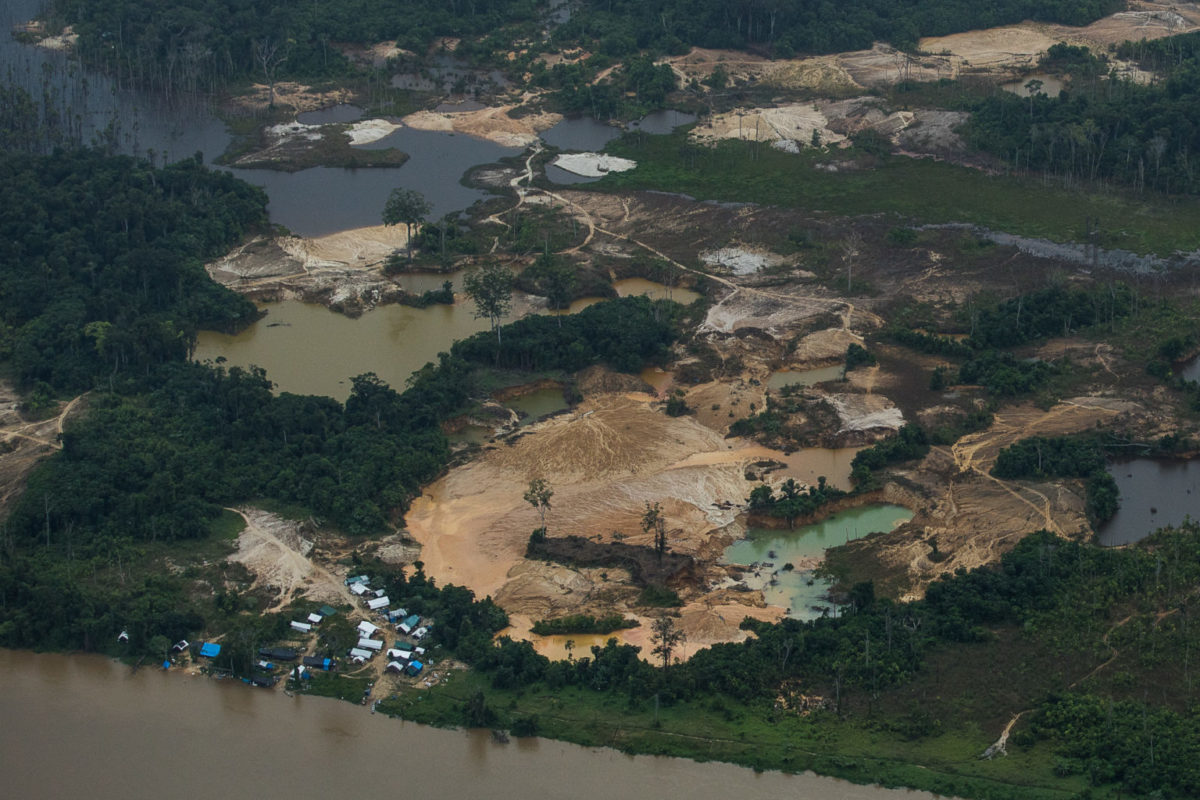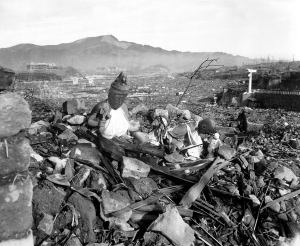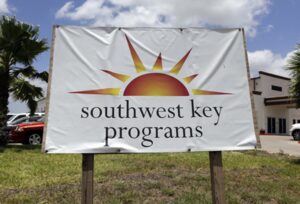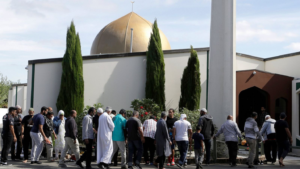May 19, 2022 | Christian Poirier and Ana Paula Vargas | Eye on the Amazon
The Bolsonaro regime stands by despite murder and sexual assault
Content warning: The following blog includes descriptions of rape and violence.
The Yanomami’s Hutukara Association has declared a humanitarian crisis in the wake of the reported rape and killing of a 12-year-old Yanomami girl by miners, the disappearance of a 3-year-old child, and attacks on the Yanomami’s Aracaçá village that have placed the Amazonian community “on the verge of disappearance” because of violence caused by miners.
According to Júnior Hekurari, president of the Yanomami and Yek’wana Indigenous Health District Council (Condisi-YY), on April 25 a 12-year-old Yanomami girl was raped to death and a 3-year-old child is now missing after being thrown into a river when illegal miners attacked Aracaçá village on in the Brazilian state of Roraima.
While most of the Indigenous community in Aracaça village were hunting, the miners took advantage of their absence to invade the community. According to Hekurari, that’s when illegal miners abducted a woman, her niece, and her small child, and brought them to the miners’ camp. The woman tried to stop the rape of the girl, but the miners then violently threw her and her child into a river in retaliation.
The latest, horrific attacks on the Yanomami people by illegal gold miners operating with impunity across the Amazon demonstrate the miners’ mounting brutality and cruelty, which is matched only by the indifference of the federal government as these crimes increase on Indigenous lands.
In a visit to the community after the crime was reported, the Federal Police and Federal Prosecutors (MPF) stated that “no material evidence of homicide or rape was found.” The Amazônia Real news agency reported that according to Yanomami funeral tradition, the girl’s body had already been cremated.
The MPF and Federal Police have not pursued any information about the cremation of the girl’s body, nor have they said whether they will search for the 3-year-old child and mother who were thrown into the river.
Following the attack, Aracaçá’s communal building was burnt to the ground. It remains unclear whether the structure was burned by the Yanomami or if this was a result of the attack by the miners. In a statement, the Condisi-YY said that “some Indigenous people got together and analyzed the images of the burned community and reported that, according to custom and tradition, after the death of a loved one, the community in which he or she resides is burned down and everyone evacuates to another place.”
Aracaçá is located in one of the Amazonian regions most devastated by illegal gold mining over the past five years. It is also the village that presented the highest rate of mercury pollution within Yanomami Indigenous Land, according to an analysis conducted by the Fiocruz Institute in 2014 and 2015 in partnership with Brazil’s Socio-Environmental Institute (ISA). According to the same study, 92% of the total samples from the village residents showed very high levels of mercury poisoning, a direct result of illegal mining. In mining, mercury is used to separate gold from the soil.
According to the Yanomami Under Attack report, released on April 11 by the Hutakara Yanomami Association (HYA), Aracaçá village is “on the verge of disappearance due to the social disruption caused by the miners,” who brought alcohol and a “white powder” to the community, leaving residents “addicted, altered, and violent.”
In response to the merging threat, Brazil’s Congress set up an external commission to examine the complaints of rights violations against Indigenous people on Yanomami Land. The commission will have 13 members and be coordinated by the only Indigenous Congressperson, Representative Joenia Wapichana. The commission is now in Roraima state and had planned to visit Aracaçá village, which is only accessible by plane or helicopter and would require the logistical support of the Brazilian army. However, the military denied help to the parliamentary delegation, saying it would be impossible “due to limited air assets available in the Amazon region.”
The denial of the parliamentary delegation’s request is especially noteworthy given that Brazil’s armed forces have a history of supporting the interests of illegal Amazon mining while doing little to support law enforcement efforts against the industry. In 2020, Brazil’s Air Force brought illegal miners from the city of Jacareacanga, in Pará state, to Brasília for a meeting with then-Environment Minister Ricardo Salles.
The Yanomami people are currently facing a humanitarian crisis because the Bolsonaro regime openly sides with illegal mining and other criminal industries, pushing the Amazon towards its tipping point. In 2021 alone, illegal mining activity in Yanomami territories increased 46 percent with minimal government response. The main targets of this tragedy are women and children, who face violence and sexual abuse.
The violence and threats against Indigenous communities are deeply embedded in the mining industry, and it is unacceptable. Today, Brazil’s federal government and its head of state refuse to respect Brazil’s Constitution, especially regarding the rights of Indigenous peoples. The government is enabling the destruction of the environment, and the experiences of the Yanomami should not be normalized. Bolsonaro places profit over people, and this cannot be met with silence. While the world bears witness to this unfolding tragedy, we know it can feel heavy and like there is nothing we can do. But our voice and awareness play an important role, and we must keep this in the spotlight. We must demand accountability and a full response to this unfolding humanitarian crisis, and it starts with a thorough investigation into the recent tragedy in Aracaçá.




